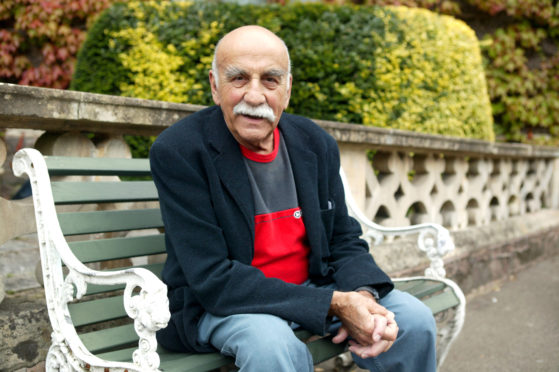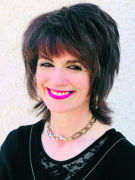I once had lunch with Alf Garnett, the archetypal little-Englander prone to splenetic, four-letter outpourings of rage about black people, women, commies, long-haired layabouts, Johnny Foreigner – anything that interfered with how life should be in his green and pleasant land of Wapping.
Or rather, I had lunch with the late Warren Mitchell, the magnificent actor who played him, which was quite a different matter.
Mitchell, who by this time was almost 80, was Jewish, though it was a cultural rather than a spiritual Jewishness. “I am an atheist – thank God!” he quipped. I remembered him this week amid all the stories that sprang from the 75th Holocaust Commemorations. In 1938, Warren Missell as he was born, stood in Liverpool Street station with his father, waiting for the arrival of the Kindertransport carrying Jewish children out of Germany. On the train was his temporary sister, “our little girl” as he called Ilsa Moses.
Ilsa’s family story was heart-rending. Mitchell described the roller coaster of her parents’ experiences: beaten by Nazis, smuggled across Europe, their possessions confiscated, before being torpedoed in a liner crossing the Atlantic. Shortly after, it was discovered they had been rescued in a lifeboat, but then they were classed as enemy aliens and imprisoned. Mitchell saw a letter that Ilsa’s father had written to the prison governor asking if he could write to his daughter in London on plain paper, so that she wouldn’t know he was in jail.
Across the table from me, Mitchell’s eyes shone brightly with tears before his head dropped and his voice broke into a sob that spoke of an old, but still raw pain. At his age, he said apologetically, he cried very easily. As a young man, he had become, “a fervent German-hater”. “I really was full of hatred for what had been done to Ilsa and her parents,” he told me. All those years later, he still wouldn’t buy a German car. Yet he hated the racism of his most famous character, Alf, and chided himself for his own. “I am so prejudiced,” he said.
Lest we forget. Quite rightly, the message of holocaust memorial events is that we must remember specifically what happened to the Jews. But it is also important to acknowledge more generally what mankind is capable of and apply the lesson of history to contemporary contexts.
Warren Mitchell’s story illustrated the way the flames of hatred were fanned in him emotionally, even when intellectually, he disapproved of that hatred. As the holocaust took centre stage, it emerged this week that the Home Office’s approach to tackling radicalisation amongst young people is so flawed that it is “madness”, according to one of the biggest studies in Europe, part-funded by the Home Office itself. The most effective way to prevent the hatred and disaffection of young people, it found, is exactly the opposite of what the Conservative government has chosen to do.
It makes uncomfortable reading for the Home Secretary, Priti Patel. In the last few weeks, Patel has announced hardline measures emphasising longer jail terms and increased monitoring. All of which would be fine if “tough” and “hardline” actually worked. This isn’t just a question of right and wrong but also of what works and what doesn’t. Their own research shows draconian doesn’t.
The study showed “positive psychology” amongst young people – offering encouragement and addressing social exclusion – was far more effective in countering extreme ideologies than “tough” measures. In other words, human beings respond better to encouragement than criticism. Isn’t that an obvious facet of human nature? Authoritarianism leads to entrenchment. Make a religious or cultural group feel opposed, beleaguered and hated and you incite violence. Extremism – whether in Nazi Germany, Ireland, South Africa or the Middle East – rises from suppression, like some terrible phoenix from the ashes of potential extinction.
Warren Mitchell did not believe in the religious aspects of his Jewish heritage but even so, he clung tighter to the cultural strands when it was under threat. Sadly, his relationship with Ilsa did not end well. As his 65th birthday approached, he took out an advert in the New York times: Ilsa Moses please contact Warren Mitchell. Ilsa responded but when she discovered Mitchell’s wife, Connie, was not Jewish, she refused to visit his non-Kosher household.
When staying in New York, Mitchell visited her instead. But his gifts of a magnum of champagne and a huge box of chocolates were not allowed in the house because they were not Kosher. During dinner, Ilsa’s son-in-law turned on him. Why had he married outside the faith? Did he not realise he was completing Hitler’s job for him? Mitchell got up and left.
When someone has the life-story IIsa had, it is hard to criticise where they end up. We are all a product of our experiences: Alf, Warren, Ilsa, you, me. That is why, as a society, we need to be careful about the experiences we dish out. “The whole evening ended disastrously,” Mitchell told me sadly, as we left the table. “It always does when you meet fundamentalists, doesn’t it?”
Catherine Deveney is an award-winning investigative journalist, novelist and television presenter

